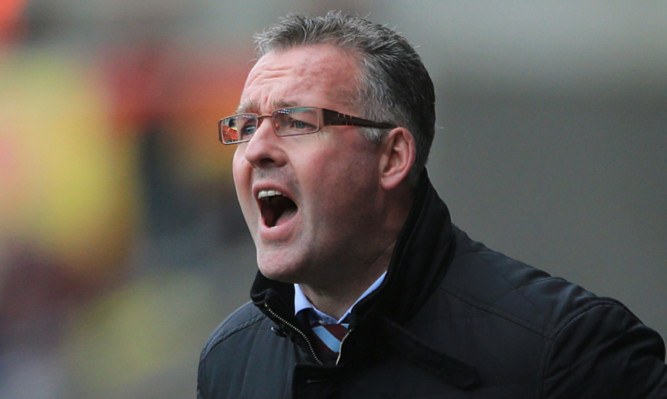
I can see another tough campaign for Paul Lambert and Alan Irvine.
The English Premier League came frighteningly close to not boasting a Scottish manager at one stage last season.
But I’m hoping that never comes to fruition because my countrymen have always played a major role as bosses in the top flight.
Even although Sir Alex Ferguson retired, the Scottish flag was still being flown by the man who replaced him, David Moyes, as well as Malky Mackay, Steve Clark and Paul Lambert.
In the end, the latter was the only one still in a job come the climax to the season and even then he was under quite a bit of pressure at Aston Villa.
Three of them were axed, and I was genuinely concerned for the first time in many, many years the influence of a Scottish manager in England’s top flight was about to come to an end.
When you look back over the years Sir Alex was obviously the most dominant throughout his 26 years at Manchester United.
But Kenny Dalglish enjoyed success in his first spell as Liverpool manager, continued that at Blackburn Rovers and came close at Newcastle United.
George Graham will go down as one of the best Arsenal managers of all time. And before all of them, there was Sir Matt Busby and Bill Shankly.
This season, however, Scottish hopes rest with Lambert and newly-appointed West Brom boss Alan Irvine.
I need to be honest here I really fear for the both of them. They’ve both got tremendously difficult jobs on their hands.
Lambert is in charge of a club that is up for sale. There isn’t much money for him to work with, and therefore the signings have been pretty uninspiring.
That isn’t his fault, but Villa have a demanding set of supporters who don’t want to see their club involved in yet another relegation battle.
I don’t know why they expect more when they look around and see what other clubs are spending in comparison to their team. But they do.
Unfortunately, I can see another tough campaign for them. The best Paul can hope for is that their team spirit and their organisation can somehow get them through.
I can’t see this happening, but if they were to finish in the top 10 I’d rate the achievement up there with their famous European Cup win in 1982.
Poor Alan, meanwhile, really has his work cut out at West Brom. There aren’t many managers who find the fans revolting and protesting following their appointment.
They weren’t happy at all in the Board’s decision, and if his players don’t hit the ground running during the early stages of the campaign, then it will be tough going.
At least, unlike Lambert, Alan has had some money to spend. But I’m keeping my fingers crossed the pair can prove everyone wrong and make sure the Scottish influence on the English Premier League increases, rather than decreases.

Enjoy the convenience of having The Sunday Post delivered as a digital ePaper straight to your smartphone, tablet or computer.
Subscribe for only £5.49 a month and enjoy all the benefits of the printed paper as a digital replica.
Subscribe